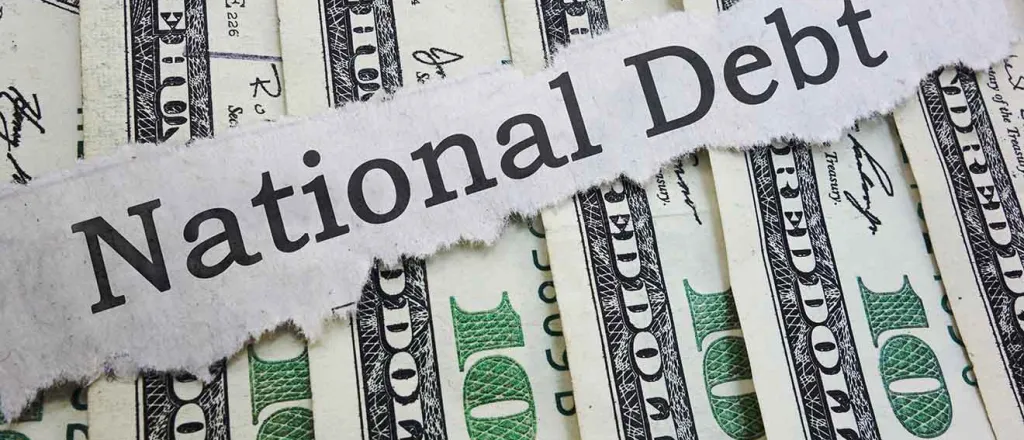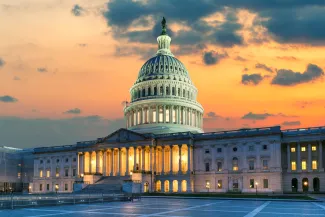
Federal interest costs to hit record in two years, CBO says
(The Center Square) – The federal government is on track to spend $1.6 trillion more than it brings in this fiscal year with new projections published Wednesday showing federal spending is projected to remain unsustainable in the decades to come.
The Congressional Budget published its Budget and Economic Outlook on Wednesday. The new projections show Congress has made limited progress on tackling deficits and debt. The projections show troubling financial trends will continue, according to experts.
Maya MacGuineas, president of the Committee for a Responsible Federal Budget, said alarm bells should be ringing for lawmakers.

"Our debt is rising out of control, and it's time for Congress to wake up," she said. "The outlook has improved some thanks to the bipartisan Fiscal Responsibility Act, but our fiscal situation remains precarious. The national debt will reach a new record as a share of the economy in four years, and interest costs will hit a record in just two years."
U.S. Sen. Mitt Romney, R-Utah, who is not seeking another term in the legislature, said the risk is "economic and geopolitical collapse."
"The U.S. economy is becoming critically fragile as we continue to ignore our public debt crisis," he wrote on X. "Without action, we risk economic and geopolitical collapse."
By 2034, the CBO projects debt held by the public will hit $48.3 trillion, the budget deficit will increase to $2.6 trillion, interest on the nation's debt will jump to more than $1.6 trillion and the Highway, Social Security and The Old-Age and Survivors Insurance trust would be depleted, according to the Committee for a Responsible Federal Budget.
"I've seen fights on the Floor that, in the time that the fight on the Floor took, the interest clocked on U.S. borrowing used up more money than the debate was fighting to save," said U.S. Rep. David Schweikert, R-Ariz., in one of his now-common Floor speeches concerning the rate of federal borrowing and spending.
Michael Peterson, CEO of the Peter G. Peterson Foundation, called the projections a clear warning.
"Today's CBO projections are the latest loud and clear warning about America's unsustainable national debt. There has never been a more urgent time for a bipartisan fiscal commission to recommend solutions to put us on a stronger path," he said in a statement. "Over the next 10 years, we're on track to borrow more than $20 trillion, driven by well-known structural factors including the aging of the population, rising healthcare costs, mounting interest costs and a tax system that doesn't fund the promises we've made."
The federal debt will continue to climb compared to the nation's gross domestic product or GDP, a metric of economic output, according to the CBO projections.
Debt held by the public rises each year in relation to the size of the economy, reaching 116% of GDP in 2034 – an amount greater than at any point in the nation's history. From 2024 to 2034, increases in mandatory spending and interest costs outpace declines in discretionary spending and growth in revenues and the economy, driving up debt. That trend pushes federal debt to 172% of GDP in 2054.
"Interest costs have more than doubled in just the past three years, rising to more than $2 billion per day this year," Peterson said. "And by next year, we'll spend more on interest than on defense and nearly all other national priorities."
The CBO projected that annual interest payments will reach $1.6 trillion by 2034 and will continue to grow from there. By comparison, interest costs on the country's debt were $879 billion in fiscal year 2023.
"The deficits that CBO projects are large by historical standards. Over the past 50 years, the annual deficit has averaged 3.7 percent of GDP," according to the report. "In CBO's projections, deficits equal or exceed 5.2 percent of GDP in every year from 2024 to 2034. Since at least 1930, deficits have not remained that large for more than five years in a row."
















